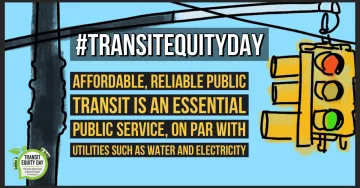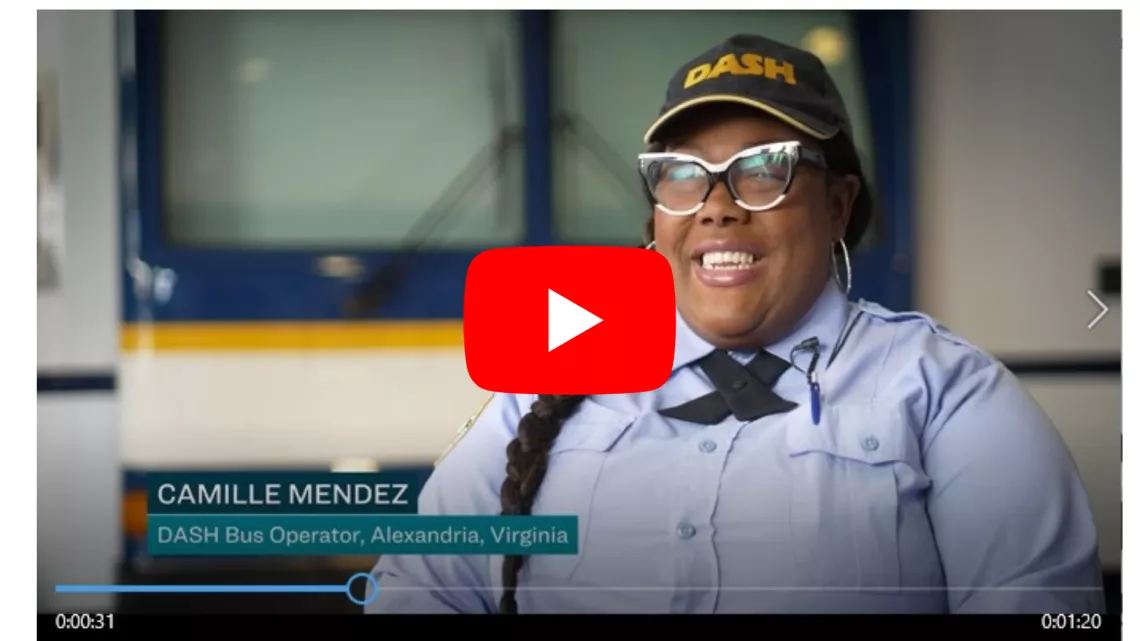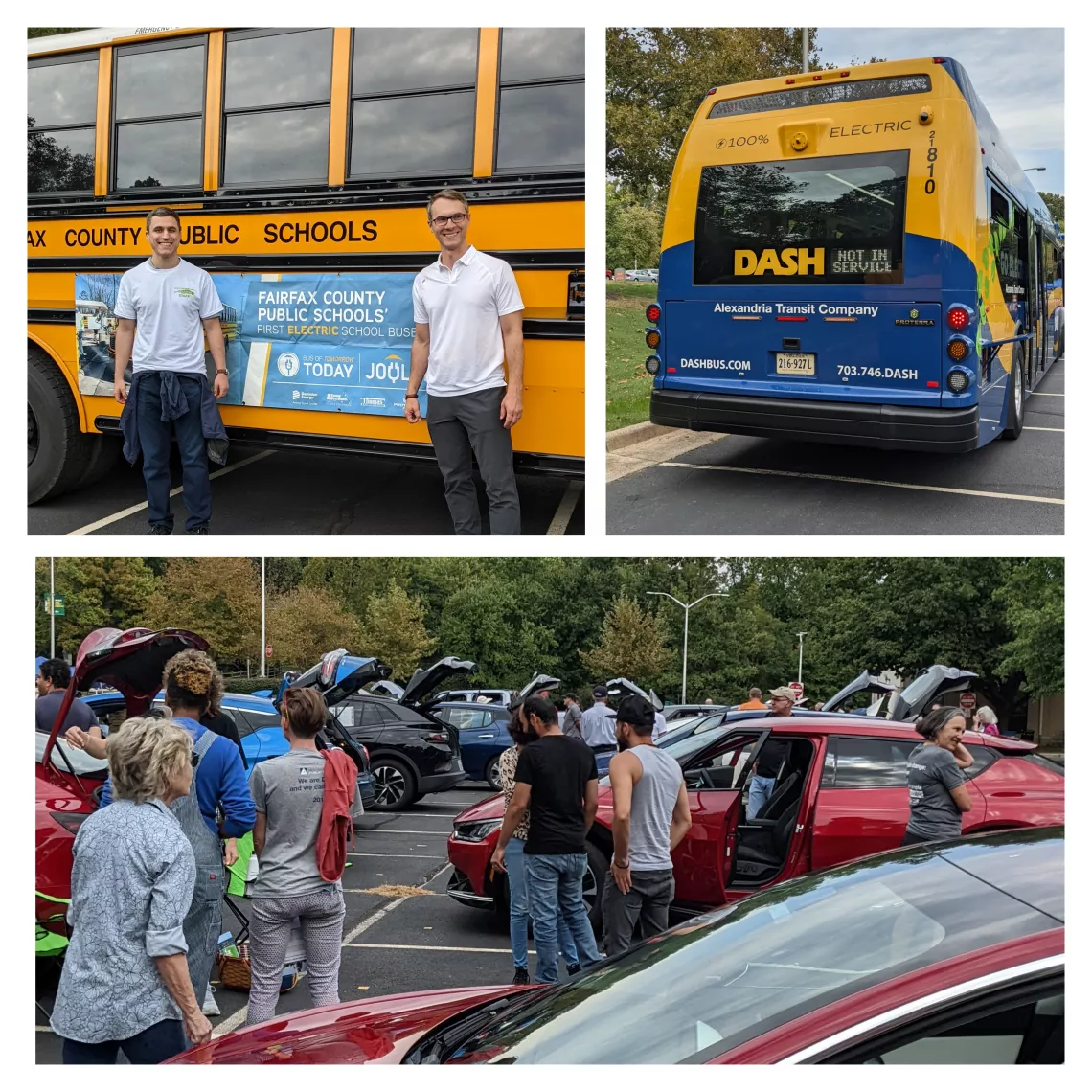Smart Growth: Transit-Oriented, Walkable, Bike-friendly Communities
The Sierra Club supports Smart Growth, in which transportation and land use decisions are made concurrently; with a focus on reducing vehicle miles traveled, affordable housing choices, lower minimum parking space requirements, transportation infrastructure design that reduces stormwater runoff, and plentiful natural green spaces. By creating places where people of all income levels can live, work, and play without hopping into a car, we can create sustainable, resilient, inclusive communities with a greater quality of life for everyone.
Transportation investments should make Virginia communities healthier, more attractive places to live. Decisions that shape our communities should be transparent and provide meaningful opportunities for public input. Expanded transportation choices, coupled with supportive land-use policies, will reduce greenhouse gas emissions.
Transit Equity

Reliable, accessible, and clean transit systems help reduce toxic pollution – especially in low-income and communities of color – and connect residents to jobs, educational opportunities, services, recreation, and their loved ones.
Transit equity encompasses a variety of issues and potential solutions, including free or reduced fares, frequent and reliable bus and train service, equitable pay and treatment for transit workers, equitable treatment and accessibility for riders, expansion of transit without displacement of lower income residents, and cleaner air through zero emission battery electric buses.

2021 Sierra Club Virginia Chapter’s Transit Equity Day Lunch & Learn
2022 Sierra Club Virginia Chapter’s Transit Equity Day Lunch & Learn
Electrifying Virginia’s Transportation
The Sierra Club is working to accomplish a widespread shift to plug-in battery electric vehicles (EVs). EVs are much cleaner than conventional vehicles today, even accounting for the emissions from electricity sources. As we shift to more renewable sources of power, EVs become even cleaner over time. Our work includes advocacy for federal, state, and local policies that will make EVs more accessible; a push for the utility sector to invest in EV programs; outreach to inform the public or the benefits of EVs; and campaigning for transit agencies and school districts to invest in electric buses.
• Transit Bus Electrification - Learn about the Chapter’s efforts to transition Virginia’s municipal bus fleets to zero emission battery electric through its Go EVirginia campaign. Go EVirginia gives advocates and decision makers a central location for bus electrification progress being made throughout the Commonwealth, and resources to help your community electrify its fleets.
• Metro Electric Bus Coalition – The Washington Metropolitan Area Transit Authority (WMATA) operates the sixth largest bus fleet in the United States. Metro needs to go electric so that all of us can breathe easier.
In October of 2020, Sierra Club and 17 partner organizations released a report calling on WMATA to commit to 100% electrification of its transit bus fleet by 2045, or sooner, and to take immediate steps toward achieving that goal. In June 2021, WMATA committed to electrifying by 2045. The Metro Electric Bus Coalition, of which the Sierra Club Virginia Chapter is a member, advocates for a quicker transition to 100% battery electric buses, and urges WMATA to cease exploring an investment in compressed natural gas (CNG) fossil fuel buses and infrastructure.
• EV School Bus Funding – Virginia Sierra Club volunteers are helping their school districts switch to battery electric school buses. You can get involved, too: ask your school board members and county Supervisors or city Council Members to develop a plan for transitioning to a 100% battery electric school bus fleet, and tell them about the EPA Clean School Bus Funding Program.
• National Drive Electric Week (NDEW) – National Drive Electric Week is an annual nationwide celebration that is co-sponsored by the Sierra Club to raise awareness of the many benefits of all-electric and plug-in hybrid cars, trucks, motorcycles, and more.

More Information:
-
AchiEVe: Model Policies to Accelerate Electric Vehicle Adoption
-
Multi-state Zero Emission Vehicle (ZEV) Action Plan 2018 - 2012
Additional resources:
-
Charging Up: The Role of States, Utilities, and the Auto Industry in Dramatically Accelerating Electric Vehicle Adoption in Northeast and Mid-Atlantic States
There are many ways you can get involved, such as supporting upcoming efforts or becoming a volunteer with the Transportation Team.
|
|
